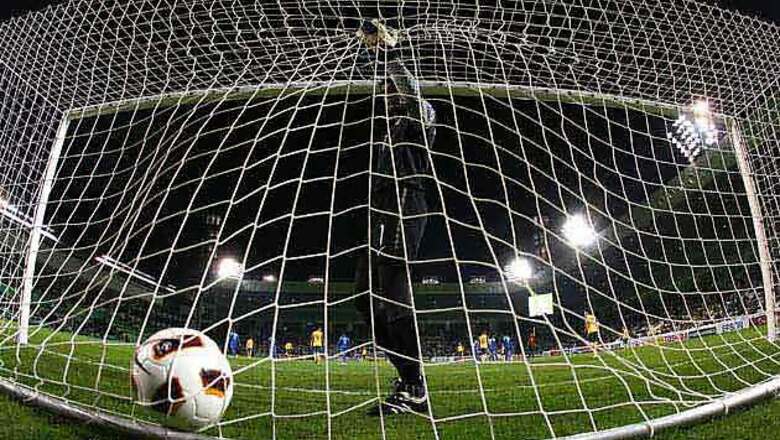
views
London: A rigorous integrity system, clear audit trails and information sharing with sports federations mean European betting firms are less at risk than Asian counterparts from gamblers hoping to profit from match-fixing, three British-based firms said on Tuesday.
An inquiry by European police forces, the European anti-crime agency Europol, and national prosecutors has uncovered about 680 suspicious matches allegedly fixed as part of a global betting scam run from Singapore.
They included qualifying games for the World Cup, the European Championship and the Champions League although many of the suspicions were already known.
Britain's two biggest bookmakers, William Hill and Ladbrokes, are members of the European Sports Security Association (ESSA), an organisation established in 2005 by leading European betting operators to detect and report suspicious betting patterns in sport.
In 2011 there were 69 irregular incidents identified by ESSA, of which eight turned out to be suspicious. Some 45 percent of the alerts came from football betting.
The figures represented a slight increase from 2010 when there were 58 irregular incidences, and four suspicious alerts.
ESSA chairman, Mike O'Kane of Ladbrokes, said a whole series of triggers "hopefully keeps the bad people out of the licensed operators".
"If you want to fix a match for serious financial gain, hopefully you steer clear of European operators," he told Reuters.
"We have 15 sets of eyes looking at transactions."
Asian betting operators were more vulnerable, O'Kane said, because the sheer volume of betting across that continent made it harder to spot fixing.
"In Asia, liquidity is so much bigger. The typical Asian bookmaker can get 8-10 million euros on a game of football. They are dealing with Asia and it's a very big market," he said.
"Regulation is in the eye of the beholder. A bookmaker in Manila has got a licence even if we may not think that regulation is to the standard we see in Europe."
SHARE INFORMATION
O'Kane said Asian gamblers often passed a bet on to an agent while "big companies don't always deal with the end customer".
"They don't have the "know your customer" system that we have in Europe," he said.
William Hill PR director Kate Miller echoed those views and said the problem of match-fixing exposed by Europol emanated from Asia.
"It should be made clear that the corruption exposed is linked to Far East-based criminals and corrupt sports people," she said.
"At William Hill, our in-house risk management systems provide a sensitive barometer for all our trading markets, and will flag-up any anomalies or unexpected betting.
"It is highly unlikely that anything untoward will come to any of the licensed bookmakers. It is more likely to disappear into places where there is normally a prohibition on betting."
London-based Betfair, the world's largest betting exchange, has signed a Memoranda of Understanding (MoUs) with the governing bodies of 56 sports, including world soccer's FIFA and European soccer's UEFA, and will pass on names, betting details and how accounts are funded when suspicions are raised.
Betfair, which has a dedicated six-strong team of integrity analysts, process around seven million transactions a day but said the number of incidents referred each year numbered "in the 10s, not the 100s".
Customers cannot bet with Betfair unless they agree that the firm can share their information with sports governing bodies if there is an issue.
"We know who you are when you register with us and we know the bets you are placing with us," said Betfair's public affairs manager Susannah Gill.
She said the rise of internet betting actually made it easier to operate a check system.
"The invention of the internet and online betting has creating tracking and monitoring tools that were never there before - and that's often how would be corruptors, be it on horse racing or football are actually getting caught."
Gill and O'Kane both said it was the poorer-run soccer clubs and federations where the potential to match-fix was at its highest.
"Match fixers tend to target players and federations whose players have problems getting paid," O'Kane said.
"All we can do from a European perspective is try to keep the bad men out of our business."




















Comments
0 comment